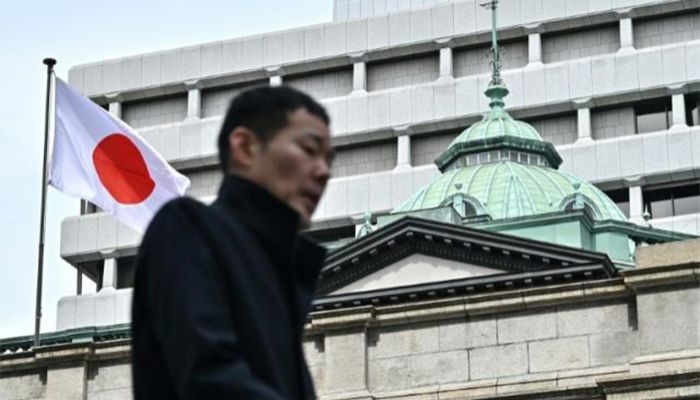
Desk Report
Publish: 19 Mar 2024, 04:17 pm

Photo: Collected
Japan's central bank pulled the plug Tuesday on its ultra-aggressive monetary stimulus programme, hiking rates for the first time since the global financial crisis.
The Bank of Japan's outlier policy of negative rates and massive asset purchases was aimed at jump-starting economic growth and price rises after the "lost decades" of stagnation and deflation.
But on Tuesday, following months of speculation, the BoJ finally changed its policy rate range from -0.1 percent to between zero and 0.1 percent, in its first hike since 2007.
Officials "assessed the virtuous cycle between wages and prices" and concluded that "the price stability target of two percent would be achieved in a sustainable and stable manner", it said.
The move will make loans more expensive for consumers and businesses, but banks will be able to earn more money from lending.
It will also increase Japan's bill for servicing the national debt, which at around 260 percent of national output is one of the world's highest.
The BoJ also called an end to other unorthodox policies including its yield curve control programme that allows bonds to move in a tight band and the purchase of exchange-traded funds because they had "fulfilled their roles".
But it said it would keep buying long-term government bonds.
Taro Saito, senior economist at NLI Research Institute, told AFP that the move was a "great step for the BoJ towards normalisation of its monetary policy it has long craved for".
The US Federal Reserve and other central banks yanked up rates to rein in inflation after Russia's 2022 invasion of Ukraine.
But despite inflation also exceeding four percent at one point, the BoJ kept its main rate below zero, where it has been since 2016.
Because negative interest rates mean banks lose out by parking capital with the BoJ, the policy was aimed at encouraging them to lend to businesses.
The policy has sharply weakened the yen against the dollar, which is good news for exporters but not for consumers as it made imports more expensive.
The yen fell past 150 per dollar and stocks gained as the BoJ's comment that conditions would remain accomodative poured cold water on expectations of more hikes.
"We think the BoJ will need a lot more convincing that inflation is truly on the path to sustained two-percent inflation before hiking again," said Tom Kenny at ANZ.
Subscribe Shampratik Deshkal Youtube Channel
© 2024 Shampratik Deshkal All Rights Reserved. Design & Developed By Root Soft Bangladesh